Speaker
Description
The ARCADIA Collaboration is developing a technology platform for the design, fabrication and characterisation of innovative monolithic sensors compatible with standard CMOS processes. The sensor technology allows to fully deplete the substrate for a fast charge collection only by drift, while the use of a small collection electrode maximises the signal-to-noise ratio. Backside lithography is used for patterning of termination structures, enabling the use of substrate thicknesses up to 500 $\mu$m.
The proposed technology will allow to extend the use and benefit of CMOS sensors to many applications in high energy physics, space applications, X-ray detection and medical physics.
To demonstrate the technology, the Collaboration developed system-grade DMAPS, pixel and strip test structures and strip arrays with fully functional embedded readout electronics, fabricated on two full engineering runs using LFoundry’s LF11is 110nm CMOS node and a high-resistivity bulk. The ARCADIA-MD1 chip features 25 $\mu$m pitch pixels on a 512x512 clock-less matrix integrated on a power-oriented flow. The triggerless binary readout is designed to cope with event rates up to 100 MHz cm$^2$, while the architecture implementation enables the scalability of the active area to matrices up to 8192 pixels high.
We shall report on the status of the project, current developments and future perspectives, providing an insight on the first characterisation results of the full-scale DMAPS detectors.
